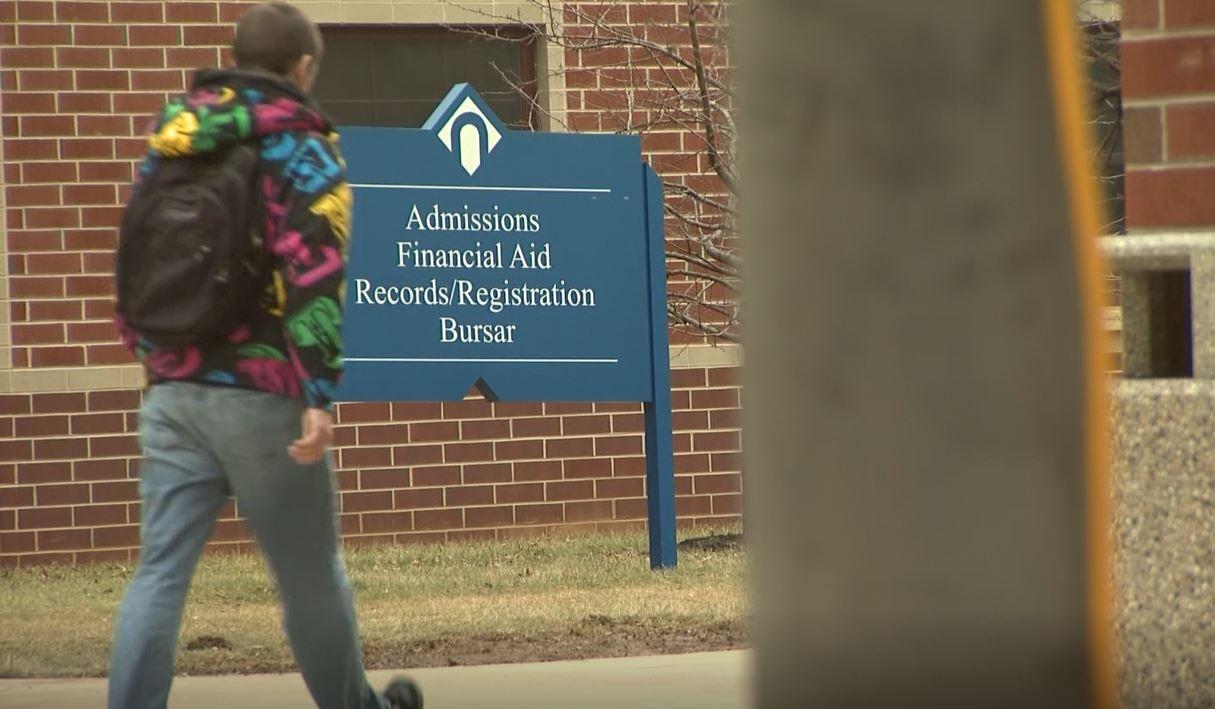ELKINS PARK, Pa. (WLVT) - “Around 2:30 a.m. the phone rings,” said Saundra Sterling Epstein, an interfaith educator and author. “It’s one of our daughters in Boston, who begins to tell us that something is really wrong, that our son has decided that he doesn’t want to live anymore, that the police were now involved.”
Epstein is the mother of a now 23-year-old son who had a mental health crisis in college. It’s a situation that’s becoming more common; a
rising number of college students are reporting serious mental health problems and seeking treatment for them, according to the American Psychological Association. B
etween the fall of 2009 and spring of 2015, the number of students who visited campus counseling centers increased by more than 30 percent, according to the Center for Collegiate Mental Health.
Epstein, an Elkins Park resident, said these students need more help, but one barrier is a privacy law that prevents schools from letting parents know when a student is in crisis.FERPA, or
the Family Educational Rights and Privacy Act of 1974, is a federal law meant to protect the privacy of students’ education records. FERPA
gives parents access to their child's education records, an opportunity to seek to have the records amended, and some control over the disclosure of information from the records. “Think HIPAA for educational privacy,” Epstein said.
Parents or guardians hold these rights until a student turns 18, when the rights transfer to the student. In a letter to her son’s university, Epstein explained why she thinks 18-year-olds shouldn’t have total control over their records.
“These children are not adults. I know that and you know that,” Epstein wrote in the letter. “Schools really do have to be responsible about contacting parents—you know, the ones who are paying all of the tuition and expense dollars—when there is a crisis or indication of such.”
Epstein is now an advocate for better communication between universities and students’ families. The new independence of college life can be overwhelming for some students, especially if they’re dealing with a mental health condition, she said.
Many mental health conditions begin to develop in those late teens, early twenties years.
Seventy-five percent of mental health conditions develop before the age of 24, according to the National Alliance on Mental Illness. So there needs to be a stronger safety net for students, Epstein said, that can start with letting parents know what’s going on. FERPA does have an option for schools to release that information.
“There is a form that schools are supposed to advise parents and children of that allow parents to continue to have the rights regarding disclosure for their children,” Epstein said.
However, the U.S. Department of Education currently has no way of enforcing the guideline to provide students and their families with that form, and Epstein said she never received it.
In her son’s case, the university may have been aware of problems, but the only clue Epstein had was fewer phone calls home in the fall of 2017.“We were getting inconsistent communications from him, a sense that he didn’t really want to tell us what was going on,” she said. “It just seemed that something was off.”
Epstein now believes her son was too ashamed to let his family know what was really going on. Then came the fateful day in June when her son called his parents to say he had to tell them something important.“He proceeds to tell us basically that everything he had told us was not the case and that in fact, he was no longer in school,” Epstein said. “He had stopped attending classes a few weeks into that semester, and he was not going back to school.”
The next day, the mental health crisis happened.
“We had a very difficult couple of weeks, couple of months after that,” Epstein said.
Her son got therapy, but Epstein said he is still working on getting his life together. It would never have reached that point, she argued, if the school had let her know when he stopped attending classes.
Epstein said she is telling her family’s story to raise awareness of the problems surrounding FERPA. She now advocates for schools to educate students and their families about their options.
“Every university should include with admission kits a waiver that the students sign that give the university permission to mail grades, notices of any problems, such as academic suspensions,” she said.
The debate over FERPA is going on all over the country, including the U.S. Congress.
Various lawmakers have floated proposals to overhaul FERPAin recent years, though nothing has passed.
But for now, Epstein said, parents need to be aware of this law, so they can make an educated decision about school communications when their child heads off to college.



